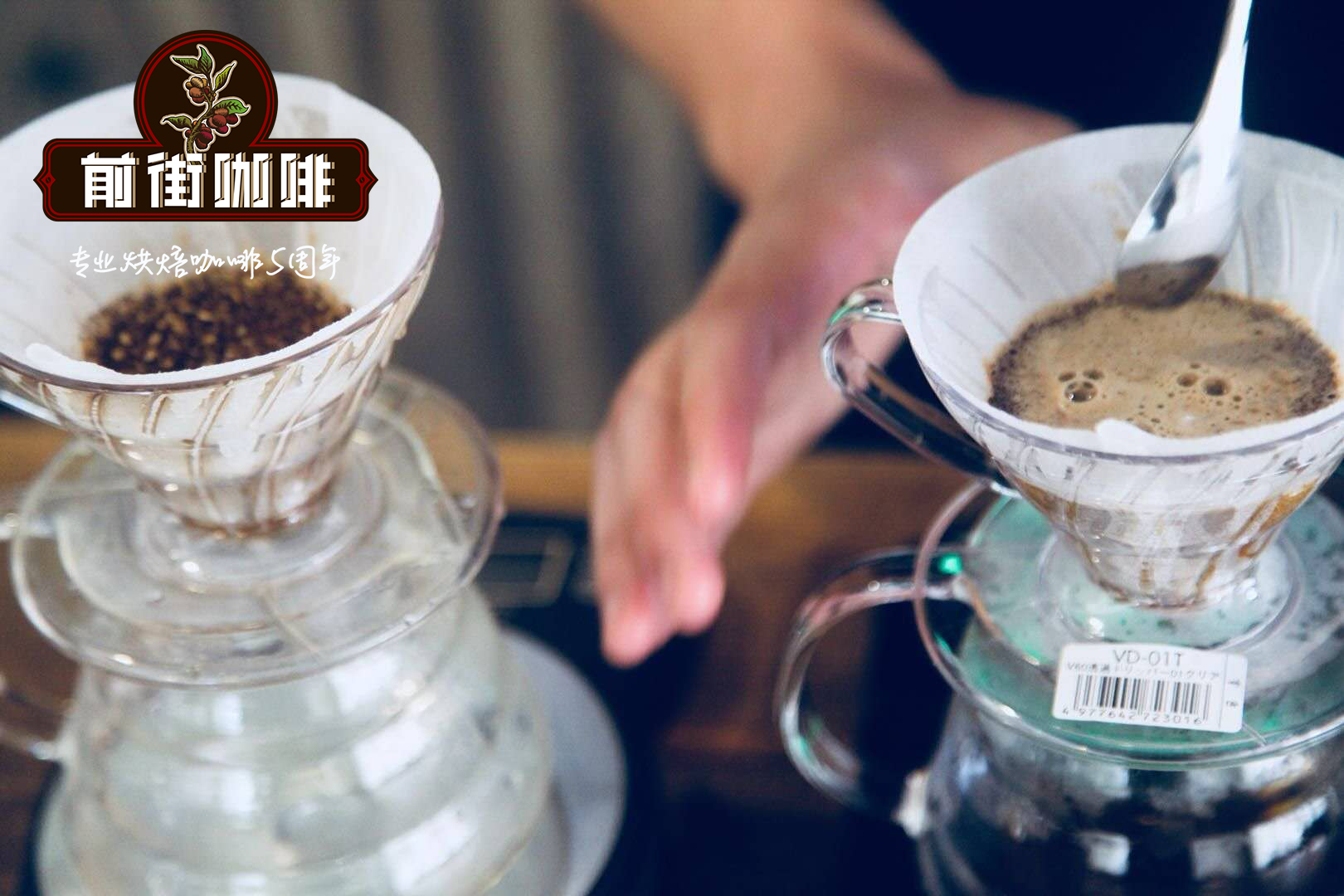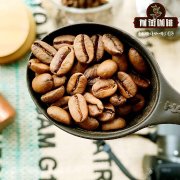Coffee growers in Yunnan are in trouble? Is Yunnan small seed coffee good?
Coffee growers in Yunnan are in trouble? Is Yunnan small seed coffee good?

The western and southern parts of Yunnan Province are located between 15 °N and the Tropic of Cancer, and most areas are 1000-2000 meters above sea level. The topography is dominated by mountains and slopes, with large ups and downs, fertile soil, sufficient sunshine, rich rainfall and large temperature difference between day and night. These unique natural conditions form the particularity of Yunnan small grain coffee taste-strong but not bitter, fragrant but not strong, slightly fruity. As early as the 1950s, Yunnan small seed coffee was very popular in the international coffee market and was rated as the top grade of coffee.
The history of coffee cultivation in Yunnan can be traced back to 1892. A French missionary brought coffee to Yunnan from abroad and successfully planted it in a valley in Binchuan County, Yunnan Province. The coffee plants of this batch of coffee seeds are still blooming and bearing fruit in Binchuan County.
Yunnan coffee was planted on a large scale in the mid-1950s, with a planting scale of 4000 hectares at one time. By the end of 1997, the planting area of coffee in the province had reached 7800 hectares. At present, the planting area of the province accounts for 70% of the national area, and the output accounts for 83% of the whole country. Yunnan coffee has established the dominant position in China in terms of planting area and coffee bean production.
The suitable planting areas of coffee in Yunnan are distributed in Simao, Banna, Wenshan, Baoshan and Dehong in the south and southwest of Yunnan.
Yunnan small-grain coffee, Rubiaceae, coffee genus, the planting area is mainly distributed in Lincang, Baoshan, Simao, Xishuangbanna, Dehong, Nujiang and other states. Small grains of coffee are native to Ethiopia or Arabian Peninsula. It is cultivated in Fujian, Guangdong, Hainan, Guangxi, Sichuan, Guizhou and Yunnan. Superior geographical conditions make the coffee industry in Yunnan develop rapidly. In 2014, both planting area and output accounted for more than 99% of the country's total.
Baoshan, as the earliest area of coffee industrialization in Yunnan Province, the planting history can be traced back to the mid-1950s. Today, when the coffee planting area in Yunnan Province has grown to 1.3 million mu, Baoshan City has also grown to 230000 mu, exceeding the target of 200000 mu by 2015 in the Yunnan Coffee Industry Development Plan (2010).
There are many honors in the old producing areas.
Baoshan small grain coffee is famous all over the world. it was rated as first class at the International Coffee tasting Conference in London in 1958 and won the laudatory name of "Lujiang No.1". It was recognized as "the crown of national coffee" at the National Coffee Conference in 1980 and was listed as one of the national coffee production bases by the State Council. Lujiangba small grain coffee has become a coffee variety supporting national improved varieties, and now its "descendants" have spread all over the country.
In October 1992, Baoshan small Coffee won the Silver Award (the highest prize) at the China Agricultural Expo. At the World Coffee Competition held in Brussels, Belgium in 1993, Baoshan small Coffee won the World Eureka Gold Award, thus occupying an important position in the world coffee market.
As the main producing area of "Lujiang small Grain Coffee" in the country and even in the world, the high-yield cultivation technology of Baoshan, especially Lujiangba, has reached the advanced level in the world, and has created an amazing record of 800.61 kg per mu. With the popularization of non-shade and dense planting techniques, the planting was put into production in the second year, and high yield can be obtained in the third year, with a yield of more than 150 kg per mu, and there are reliable methods to ensure stable yield.
Today, with the implementation of scientific planting in the main coffee producing areas, the practice of interplanting other cash crops as shade trees has received considerable attention in Dehong, Pu'er and Lincang. In this way, it can not only improve the quality of coffee, but also generate extra income from cash crops.
According to Duan Shaoshan, head of Baoshan Shian Coffee Co., Ltd., "in the past 10 years, Baoshan has developed a large number of Katim varieties, with nearly 700 coffee trees per mu, which are too dense, not only difficult to harvest, but also affect the quality of coffee. The fine varieties of Tieka, Bobang and A4288, which were first planted in Baoshan, have disappeared one after another. "
According to an industry insider, the best coffee is in Baoshan, and the worst coffee is also in Baoshan. Hu Lu, deputy secretary general of Yunnan Coffee Industry Association, pointed out: "the quality of coffee in Baoshan is seriously polarized, with some of the best coffee and some of the worst, with uneven quality."
Canon: I hope the price of coffee can be higher.
During the visit to Baoshan, when coffee was harvested and coffee beans were dried in every courtyard, the coffee purchase offer of an international coffee giant had just been announced: 17.9 yuan / kg. It is reported that this price in the 2012-2013 Yunnan coffee bean purchasing season, hit a five-year low in Yunnan coffee bean acquisition.
Shao Yanting, a 34-year-old coffee grower in Xinzhai, Lujiangba, Baoshan City, has planted more than 20 mu of coffee this year. "his family has 5 mu of coffee, and the rest is contracted, with a contract price of about 1200 yuan per mu, plus labor and fertilizer of about 1500 yuan per mu. The labor at harvest is 50 yuan a day." With the rise of prices, the planting cost of farmers is also rising year by year.
"now everything depends on coffee, and coffee is the family's all source of income," Shao Yanting said. "if the coffee purchase price is now 17.9 yuan, it can barely guarantee the basic livelihood of a family of five. If it continues to fall, we will have to stop growing coffee and grow whatever it is worth."
Duan Huirong, 56, from Xinzhai Village, Lujiang Town, said, "it has been easier to grow coffee for more than a decade, in addition to the harvest season."
Duan Huirong contracted 25,000,000 mu of coffee land, and the year before last, the highest annual income for coffee was 100,000 yuan. Due to the long time of growing coffee, there are some ten-year-old coffee trees in the field.
When talking about the low coffee purchase price this year, he said frankly that no matter whether the coffee purchase price is high or low, he will not cut down the coffee tree and will always grow coffee. However, I very much hope that the purchase price of coffee can rise. The purchase price of coffee at 28,030 yuan / kg is more satisfactory. If it can be maintained between 20,023 yuan / kg, it will also be very satisfied. But now the price of 17,018 yuan / kg will be very sad, and the days of farmers will become difficult.
Shao Weike, who is harvesting coffee in the coffee field, employs three harvesting workers. "he owns 780 mu of coffee land, and last year's annual income was only about 20,000 yuan." when he mentioned that this year's purchase price would not be high, he expressed great concern: "the income from growing coffee is only enough to support the living expenses of a family of five, and there is no way to save money." "now many poor people are growing coffee, and they very much hope that the purchase price of coffee will be better so that everyone can build new houses," he said. "
When asked whether coffee trees would be cut down and other cash crops with good returns if coffee prices continued to fall, he said: "even if the purchase price of coffee is low, coffee trees will not be cut down, because changing to other crops requires re-learning technology. the investment will be very large, so we will continue to grow coffee."
Breaking through needs the guidance of the government
It is reported that the industrialization of Baoshan coffee was planted earlier, but it was mostly planted spontaneously by farmers, resulting in a situation of exclusive management of non-government departments, no planning and no industrial policy support.
When asked how many enterprises there are in the initial scale of coffee processing, Duan Shaoshan, who is familiar with the Baoshan coffee industry, has more than 10 fingers, and each of them is short of funds, and there are no enterprises that do intensive processing.
In Duan Shaoshan's view, the old producing areas are also facing new challenges, and it is urgent to improve the coffee varieties in Baoshan. "Baoshan must change the style of the old producing areas, improve coffee varieties, do not ask for more, and strive for refinement. For example, 3 tons of beans of average quality are not as good as 1 tons of high-quality beans."
"it is suggested that the existing varieties should be changed into iron pickup trucks. Instead of a large-scale variety change, the varieties can be improved gradually by means of crop rotation." Duan Shaoshan, who has been growing coffee for many years, gives such suggestions on the bottlenecks encountered in the current development of Baoshan coffee. "the ultimate thing is to hope that the relevant government departments will pay attention to it, formulate local coffee industry development plans, and guide and standardize the development of Baoshan coffee industry."
Important Notice :
前街咖啡 FrontStreet Coffee has moved to new addredd:
FrontStreet Coffee Address: 315,Donghua East Road,GuangZhou
Tel:020 38364473
- Prev

Coffee beans grown in Pu'er District, Yunnan Province, China? Is it good?
Coffee beans grown in Pu'er District, Yunnan Province, China? Is it good? Coffee producing areas, at present, Yunnan coffee producing areas are mainly distributed in Simao, Banna, Wenshan, Baoshan and Dehong in the south and southwest of Yunnan. Huangsheng Coffee Company imports Yunnan coffee mainly in Pu'er, a small town in Simao and the hometown of Pu'er tea, surrounded by lush mountains and white clouds.
- Next

How to make Yunnan coffee beans by hand? Is Yunnan small grain better than Hainan coffee?
How to make Yunnan coffee beans by hand? Is it better than Hainan coffee? Variety: Tiebika, original species. It is true that Luodou and related hybrid varieties now have a large market share, and there are also some comments on Luodou. However, we are commenting on boutique coffee, Blue Mountain, Kona, back to the lineage theory, you have to admit, one.
Related
- Detailed explanation of Jadeite planting Land in Panamanian Jadeite Manor introduction to the grading system of Jadeite competitive bidding, Red bid, Green bid and Rose Summer
- Story of Coffee planting in Brenka region of Costa Rica Stonehenge Manor anaerobic heavy honey treatment of flavor mouth
- What's on the barrel of Blue Mountain Coffee beans?
- Can American coffee also pull flowers? How to use hot American style to pull out a good-looking pattern?
- Can you make a cold extract with coffee beans? What is the right proportion for cold-extracted coffee formula?
- Indonesian PWN Gold Mandrine Coffee Origin Features Flavor How to Chong? Mandolin coffee is American.
- A brief introduction to the flavor characteristics of Brazilian yellow bourbon coffee beans
- What is the effect of different water quality on the flavor of cold-extracted coffee? What kind of water is best for brewing coffee?
- Why do you think of Rose Summer whenever you mention Panamanian coffee?
- Introduction to the characteristics of authentic blue mountain coffee bean producing areas? What is the CIB Coffee Authority in Jamaica?

